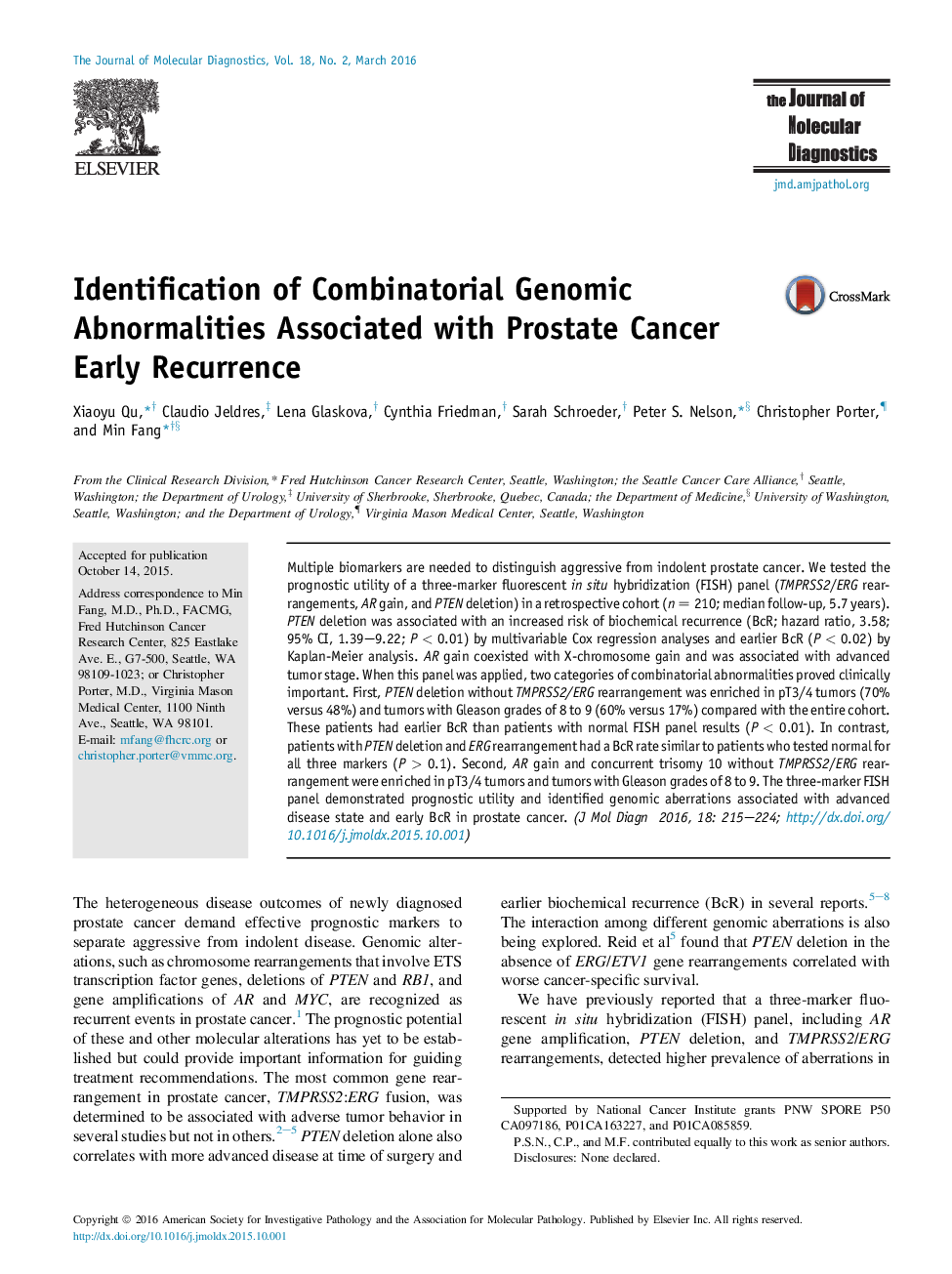| Article ID | Journal | Published Year | Pages | File Type |
|---|---|---|---|---|
| 6112276 | The Journal of Molecular Diagnostics | 2016 | 10 Pages |
Multiple biomarkers are needed to distinguish aggressive from indolent prostate cancer. We tested the prognostic utility of a three-marker fluorescent in situ hybridization (FISH) panel (TMPRSS2/ERG rearrangements, AR gain, and PTEN deletion) in a retrospective cohort (n = 210; median follow-up, 5.7 years). PTEN deletion was associated with an increased risk of biochemical recurrence (BcR; hazard ratio, 3.58; 95% CI, 1.39-9.22; PÂ <Â 0.01) by multivariable Cox regression analyses and earlier BcR (PÂ <Â 0.02) by Kaplan-Meier analysis. AR gain coexisted with X-chromosome gain and was associated with advanced tumor stage. When this panel was applied, two categories of combinatorial abnormalities proved clinically important. First, PTEN deletion without TMPRSS2/ERG rearrangement was enriched in pT3/4 tumors (70% versus 48%) and tumors with Gleason grades of 8 to 9 (60% versus 17%) compared with the entire cohort. These patients had earlier BcR than patients with normal FISH panel results (PÂ <Â 0.01). In contrast, patients with PTEN deletion and ERG rearrangement had a BcR rate similar to patients who tested normal for all three markers (PÂ >Â 0.1). Second, AR gain and concurrent trisomy 10 without TMPRSS2/ERG rearrangement were enriched in pT3/4 tumors and tumors with Gleason grades of 8 to 9. The three-marker FISH panel demonstrated prognostic utility and identified genomic aberrations associated with advanced disease state and early BcR in prostate cancer.
